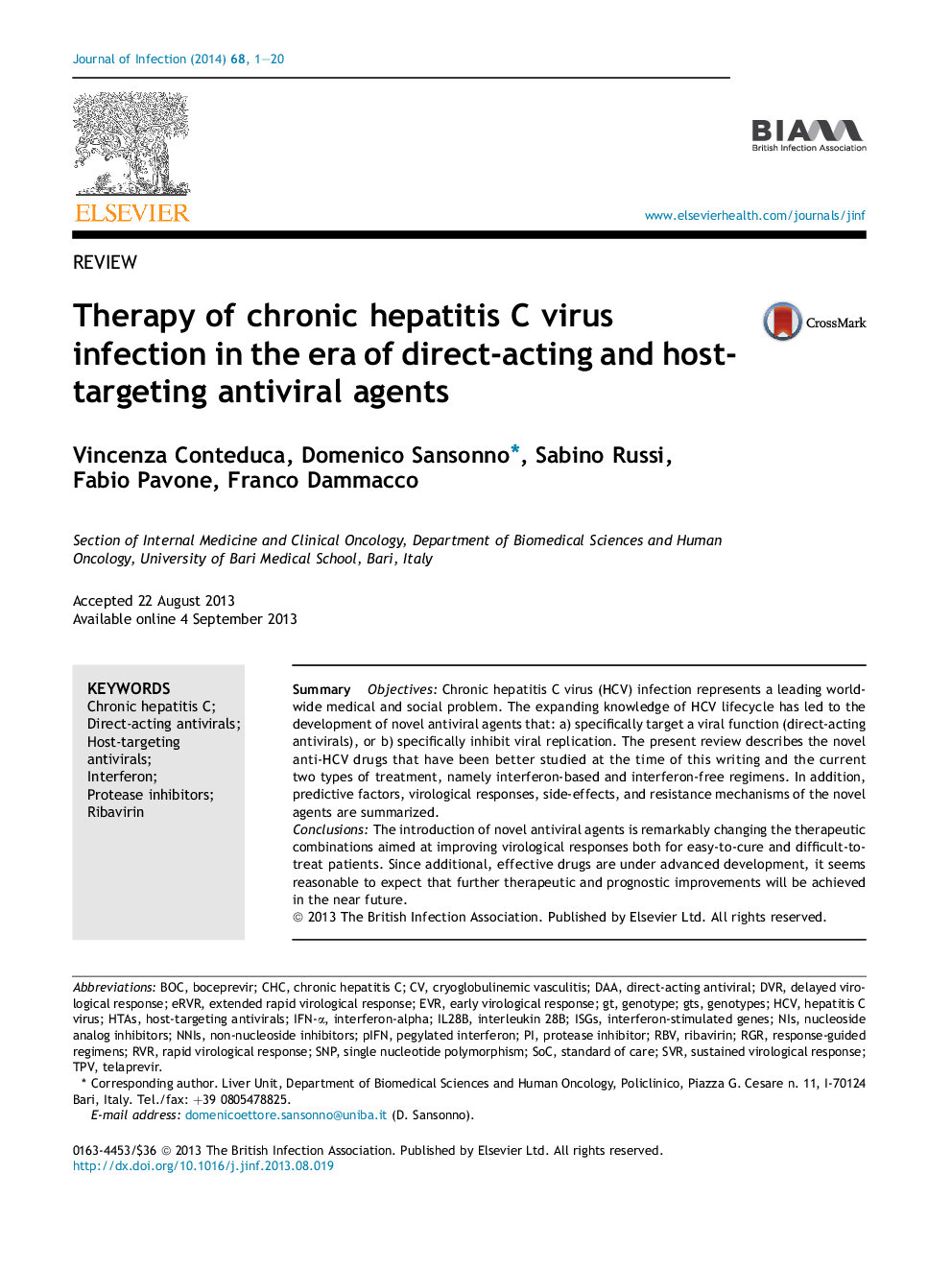| Article ID | Journal | Published Year | Pages | File Type |
|---|---|---|---|---|
| 3374509 | Journal of Infection | 2014 | 20 Pages |
SummaryObjectivesChronic hepatitis C virus (HCV) infection represents a leading worldwide medical and social problem. The expanding knowledge of HCV lifecycle has led to the development of novel antiviral agents that: a) specifically target a viral function (direct-acting antivirals), or b) specifically inhibit viral replication. The present review describes the novel anti-HCV drugs that have been better studied at the time of this writing and the current two types of treatment, namely interferon-based and interferon-free regimens. In addition, predictive factors, virological responses, side-effects, and resistance mechanisms of the novel agents are summarized.ConclusionsThe introduction of novel antiviral agents is remarkably changing the therapeutic combinations aimed at improving virological responses both for easy-to-cure and difficult-to-treat patients. Since additional, effective drugs are under advanced development, it seems reasonable to expect that further therapeutic and prognostic improvements will be achieved in the near future.
